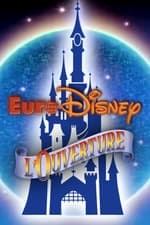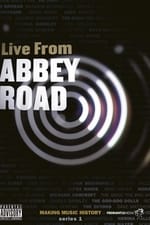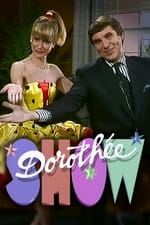Información personal
Conocido por Interpretación
Créditos conocidos 7
Sexo -
Fecha de nacimiento 1 de enero de 1978 (46 años)
Lugar de nacimiento France
También conocido como
- -
Puntuación del contenido
100
¡Sí! ¡Buena pinta!
Iniciar sesión para informar de un problema
Biografía
Gipsy Kings are a band of Catalan rumba, flamenco, salsa, and pop musicians, founded in 1978 in Arles and Montpellier, in southern France, who perform mostly in Catalan but also mix in Spanish with southern French dialects. Although the group members were born in France, their parents were mostly gitanos (Spanish Romani), who fled Spain during the 1930s Spanish Civil War. They are known for bringing rumba flamenca, a pop-oriented music distantly derived from traditional flamenco and rumba genres, to a worldwide audience. They were originally known as Los Reyes.
Gipsy Kings, born in France but brought up within Spanish culture, are largely responsible for bringing the sounds of progressive pop-oriented flamenco music to a worldwide audience. The band started out in Arles, a town in southern France, during the 1970s, when brothers Nicolas and André Reyes, sons of flamenco artist Jose Reyes, teamed up with their cousins Jacques, Maurice, and Tonino Baliardo. At the time, Jose Reyes and Manitas de Plata were a duo who triggered the wider popularity of rumba flamenca. When Reyes split from Manitas de Plata, he started a group made up of his sons, which he called Los Reyes (as well as being their family name, reyes means "kings" in Spanish).
Los Reyes started out as a gypsy band, traveling around France and playing at weddings, festivals, and in the streets. Because they lived so much like gypsies, the band adopted the name Gipsy Kings. Later, they were hired to add color to upper-class parties in such places as Saint-Tropez, but their first two albums attracted little notice. At this point, the Gipsies played traditional flamenco invigorated by Tonino Baliardo's guitar playing and Nicolas Reyes' voice.
The Gipsy King lineup featured a combination of left and right-handed guitarists; three of the Reyes brothers (Nicolas, André, and Patchai) play guitar left-handed, and play left-hand (and sometimes right-hand) guitars that are strung for right-handers (i.e., with the low "E" string on the bottom), while Diego Baliardo plays a left-handed guitar that is strung for left hand (i.e., with the low "E" string on the top). Together with right-handers Canut and Paul Reyes, and Paco Baliardo, these guitarists focus on delivering the strong underpinning rhythms while the more complex leads are performed by the right-handed and conventionally styled Tonino Baliardo.
Gipsy Kings became popular with their self-titled third album, released in 1987 (1989 in the United States), which included the songs "Djobi Djoba", "Bamboléo", and the ballad "Un Amor". The record spent forty weeks on the US charts, one of few Spanish-language albums to do so.
The band covered "I've Got No Strings" for the 1991 Disney Records direct-to-video album Simply Mad About the Mouse: A Musical Celebration of Imagination. Their cover version of "Hotel California" was an example of fast flamenco guitar leads and rhythmic strumming; it was featured in the 1998 Coen Brothers' movie, The Big Lebowski.
The 2010 film Toy Story 3 featured their rendition of "You've Got a Friend in Me" in a Spanish-language version, titled "Hay un Amigo en Mi", and the group performed it in a recognizable flamenco style. "Bamboleo" was featured in a grocery store scene in the 2016 film Sing. ...
Source: Article "Gipsy Kings" from Wikipedia in English, licensed under CC-BY-SA 3.0.
Gipsy Kings are a band of Catalan rumba, flamenco, salsa, and pop musicians, founded in 1978 in Arles and Montpellier, in southern France, who perform mostly in Catalan but also mix in Spanish with southern French dialects. Although the group members were born in France, their parents were mostly gitanos (Spanish Romani), who fled Spain during the 1930s Spanish Civil War. They are known for bringing rumba flamenca, a pop-oriented music distantly derived from traditional flamenco and rumba genres, to a worldwide audience. They were originally known as Los Reyes.
Gipsy Kings, born in France but brought up within Spanish culture, are largely responsible for bringing the sounds of progressive pop-oriented flamenco music to a worldwide audience. The band started out in Arles, a town in southern France, during the 1970s, when brothers Nicolas and André Reyes, sons of flamenco artist Jose Reyes, teamed up with their cousins Jacques, Maurice, and Tonino Baliardo. At the time, Jose Reyes and Manitas de Plata were a duo who triggered the wider popularity of rumba flamenca. When Reyes split from Manitas de Plata, he started a group made up of his sons, which he called Los Reyes (as well as being their family name, reyes means "kings" in Spanish).
Los Reyes started out as a gypsy band, traveling around France and playing at weddings, festivals, and in the streets. Because they lived so much like gypsies, the band adopted the name Gipsy Kings. Later, they were hired to add color to upper-class parties in such places as Saint-Tropez, but their first two albums attracted little notice. At this point, the Gipsies played traditional flamenco invigorated by Tonino Baliardo's guitar playing and Nicolas Reyes' voice.
The Gipsy King lineup featured a combination of left and right-handed guitarists; three of the Reyes brothers (Nicolas, André, and Patchai) play guitar left-handed, and play left-hand (and sometimes right-hand) guitars that are strung for right-handers (i.e., with the low "E" string on the bottom), while Diego Baliardo plays a left-handed guitar that is strung for left hand (i.e., with the low "E" string on the top). Together with right-handers Canut and Paul Reyes, and Paco Baliardo, these guitarists focus on delivering the strong underpinning rhythms while the more complex leads are performed by the right-handed and conventionally styled Tonino Baliardo.
Gipsy Kings became popular with their self-titled third album, released in 1987 (1989 in the United States), which included the songs "Djobi Djoba", "Bamboléo", and the ballad "Un Amor". The record spent forty weeks on the US charts, one of few Spanish-language albums to do so.
The band covered "I've Got No Strings" for the 1991 Disney Records direct-to-video album Simply Mad About the Mouse: A Musical Celebration of Imagination. Their cover version of "Hotel California" was an example of fast flamenco guitar leads and rhythmic strumming; it was featured in the 1998 Coen Brothers' movie, The Big Lebowski.
The 2010 film Toy Story 3 featured their rendition of "You've Got a Friend in Me" in a Spanish-language version, titled "Hay un Amigo en Mi", and the group performed it in a recognizable flamenco style. "Bamboleo" was featured in a grocery store scene in the 2016 film Sing. ...
Source: Article "Gipsy Kings" from Wikipedia in English, licensed under CC-BY-SA 3.0.
Interpretación
|
|||
|
|||
|
|||
|
|||
|
|||
|
|||
|







